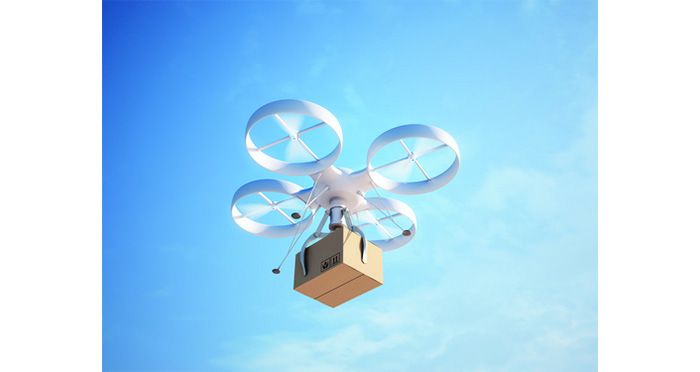It’s hard to overstate just how far the world of logistics has come in the past half century. The last two decades alone have taken us from an era when people were thrilled by the possibility of airmailing packages to a time when everyone expects to have an option for same-day shipping.
With that said, the progression we’re used to seeing will soon look like child’s play. Over the next decade or two, the industry will again be flipped on its head, as a series of looming technological advancements that would have seemed like science fiction as recently as the 1980’s are about to revolutionize it all.
The following are just four of the coming changes that will transform logistics.
The Era of Drones
Amazon made headlines the world over when the online retail giant said it was hoping to start making deliveries with drones. Though this announcement had consumers dreading a robot-crazed future in which the skies were full of pilot-less aircraft, the plans have yet to actually become a reality.
But it is inevitable. Whether it’s Amazon or another company that leads the way, the days of drones are the future. And once companies begin guaranteeing hassle-free, on-time delivery at a fraction of the current cost, nobody will even remember how strange the concept once sounded.
Digital Dealerships Take Center Stage
Digital dealerships are making the process of buying vehicles for a business easier and more reliable than ever. For companies in the transportation field, this means replacing a member of the fleet — or even multiple vans at once — takes no time at all. Gone are the days of showroom debates and long test drives that occupy half a day. Instead of wasting hours going over paperwork in person, the online marketplace is now so trustworthy and simple that the old way of purchasing a vehicle is being left behind.
Even after companies buy the vehicles, the innovation doesn’t stop. Now, digital dealerships send follow-up emails and reminders to make sure their customers are enjoying and understanding the perks on their vehicles. They also can use cloud contact centers to provide on-demand support through self-service and agent-assisted channels, like SMS, live chat, social media and video.
Driver-less Vehicles Dominate Nation’s Roads
After drone shipping, the biggest technological change that will transform logistics and shipping is the coming driver-less vehicle revolution. Though the skies have even less traffic, our nation’s roads and highways will also one day be full of cars that don’t require humans to get goods from point A to point B. And the congestion we experience will be a thing of the past.
We are still likely a ways away from a world in which this is the norm; automated vehicles remain more of a pipe dream than a reality at this point. But the improvements that it will bring to safety, travel time and cost mean that this future is inevitable. Driverless cars are coming — and they will bring a sea chance for the world of logistics.
Smart Warehouses
Smart warehousing is another technology that will transform logistics. While they don’t have to be completely automated and run by robots, smart warehouses help manufacturers automate their manual labor processes, scale their business, make last-minute changes and adjustments, and operate in real time.
Even though warehouses still require human management and oversight, they will become more and more automated as the technology becomes more reliable and consistent. They will be able to automatically bill buyers, communicate with and alert customers, keep track of inventory and more.





